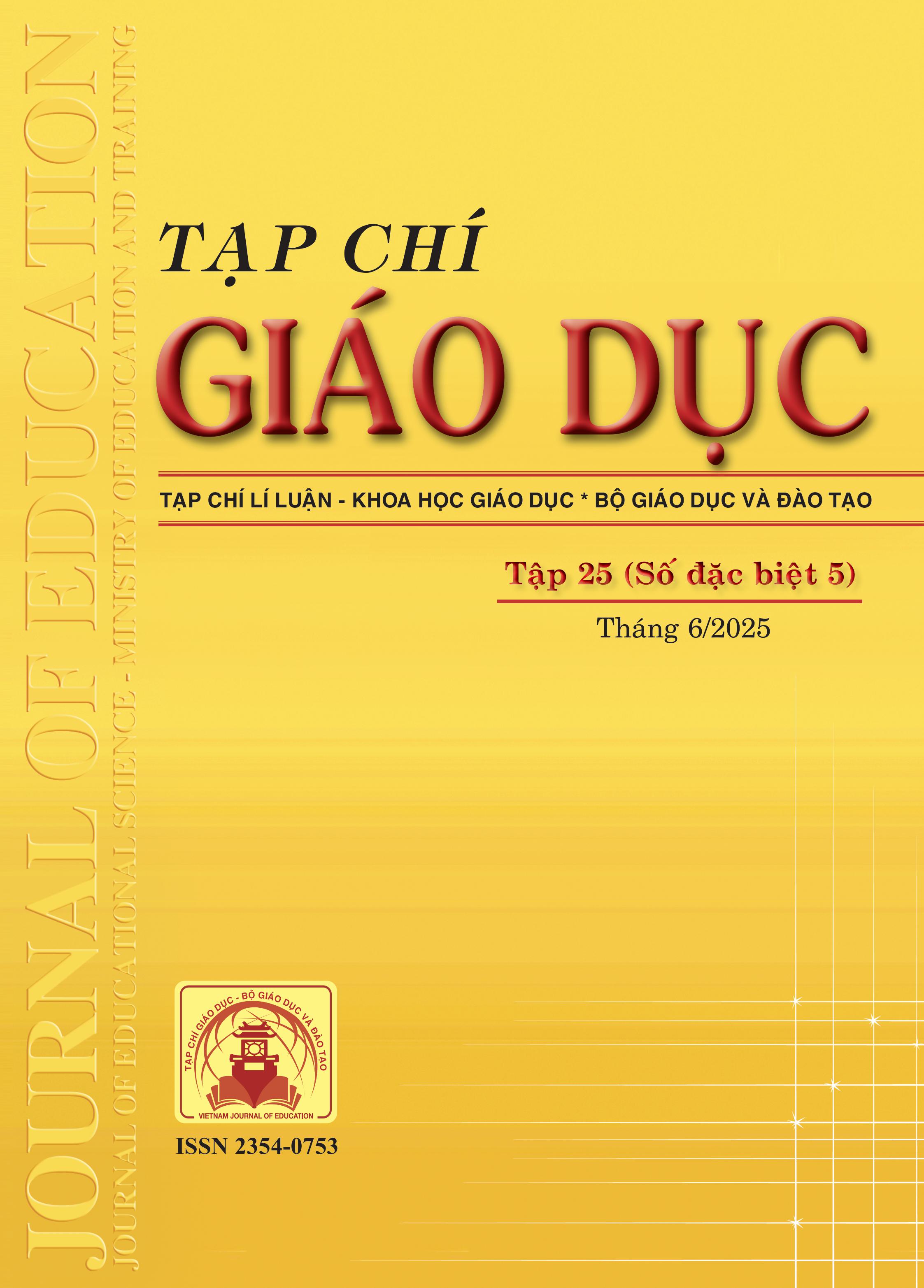Xây dựng khung năng lực văn hoá trong dạy học: Nghiên cứu trường hợp tại Trường Đại học Hà Nội
Tóm tắt
Cultural competence in teaching is not only a collection of knowledge, skills and attitudes, but also a manifestation of instructors' ethical responsibility and professional commitment to build an equitable and inclusive educational environment. This paper generates a framework of cultural competence in teaching in higher education from the paradigm of recognition. From this perspective, educators are able to fulfill the need for equal status and selfrealization of international students in multicultural higher education institutions. The conceptualization emerges from a qualitative study involving three cohorts of students from the Faculty of International Studies at Hanoi University. Data were collected through observations of 30 instructional sessions in research methodology courses, 15 indepth interviews with instructors and students of two field research programs conducted in Lao Cai and Ha Giang. These programs were organized in collaboration with the Gothenburg University (Sweden) and University College Dublin (Ireland). The resulting framework identifies five core domains of cultural competence in teaching: (1) cultural self-assessment, (2) valuing diversity, (3) management of dynamics of cultural differences, (4) cultural adaptability, and (5) institutionalization of cultural knowledge. This is the approach needed for higher education to truly meet the demands of an increasingly diverse and globalized society.
Tài liệu tham khảo
Afzal, H. , Ali, I., Khan, M. A., & Hamid, K. (2010). A study of university students’ motivation and its relationship with their academic performance. International Journal of Business and Management, 5(4), 80-88. https://doi.org/10.5539/ijbm.v5n4p80
Banks, J. A. (2016). Cultural diversity and education: Foundations, curriculum, and teaching (6th ed.). Routledge.
Bennett, J. M. (1998). Intercultural communication: A current perspective. In J. M. Bennett (Ed.), Basic concepts of intercultural communication: Selected readings (pp. 1-34). Intercultural Press.
Berry, J. W. (2006). Acculturation: A conceptual overview. In M. H. Bornstein & L. R. Cote (Eds.), Acculturation and parent-child relationships: Measurement and development (pp. 13-29). Lawrence Erlbaum Associates.
Bomia, L. et al. (1997). The Impact of Teaching Strategies on Intrinsic Motivation (pp. 1-28). Opinion Papers. https://files.eric.ed.gov/fulltext/ED418925.pdf
Charmaz, K. (2012). Constructing grounded theory (2nd ed.). Sage Publications.
Chun, E., & Evans, A. (2016). Rethinking cultural competence in higher education: An ecological framework for student development. ASHE Higher Education Report, 42(4), 7-162. https://doi.org/10.1002/aehe.20102
Cross, T., Bazron, B., Dennis, K., & Isaacs, M. (1989). Towards a culturally competent system of care (Vol. I). Georgetown University Child Development Center, CASSP Technical Assistance Center.
Cushner, K. (2012). Intercultural competence for teaching and learning. In B. Shaklee & S. Baily (Eds.), Internationalizing teacher education in the United States (pp. 41-59). Rowman & Littlefield.
DuBrin, A. (2008). Essentials of Management. South-Western College Pub, 8th edition.
Dwyer, J. G. (2011). Moral status and human life: The case for children’s superiority. Cambridge University Press.
Fraser, N. (2008). Scales of justice: Reimagining political space in a globalizing world. Polity Press.
Gay, G. (2010). Culturally responsive teaching: Theory, research, and practice (2nd ed.). Teachers College Press.
Honneth, A. (1995). The struggle for recognition: The moral grammar of social conflicts (J. Anderson, Trans.). The MIT Press.
Joy, S., & Kolb, D. A. (2009). Are there cultural differences in learning style? International Journal of Intercultural Relations, 33(1), 69-85.
Kruse, S. D., Rakha, S., & Calderone, S. (2017). Developing cultural competency in higher education: An agenda for practice. Teaching in Higher Education. https://doi.org/10.1080/13562517.2017.1414790
Ladson-Billings, G. (1995). Toward a theory of culturally relevant pedagogy. American Educational Research Journal, 32(3), 465-491.
Luong, P. M., Tran, L. T., Dang, G. H., & Vu, T. V. (2025). Teachers’ Perceptions of Culturally Responsive Teaching in International Programs in Vietnamese Higher Education. Vietnam Journal of Education, 9(1), 76-84. https://doi.org/10.52296/vje.2025.529
Moule, J. (2012). Cultural competence: A primer for educators (2nd ed.). Wadsworth Cengage Learning.
Nieke, W. (2012). Kompetenz und Kultur: Beiträge zur Orientierung in der Moderne (Competence and culture: Contribution to orientation in modernity). Springer VS.
Taylor, C. (1994). The politics of recognition. In C. Taylor, K. A. Appiah, J. Habermas, S. C. Rockefeller, M. Walzer, & S. Wolf, Multiculturalism: Examining the politics of recognition (pp. 25-73). Princeton University Press.
Ting-Toomey, S. (2009). Intercultural conflict competence as a facet of intercultural competence development: Multiple conceptual approaches. In D. K. Deardorff (Ed.), The SAGE handbook of intercultural competence (pp. 100-120). SAGE.
UNESCO (2013). Intercultural competence: Conceptual and operational framework. http://unesdoc.unesco.org/images/0021/002197/219768e.pdf
Đã Xuất bản
Cách trích dẫn
Số
Chuyên mục
Giấy phép

Tác phẩm này được cấp phép theo Ghi nhận tác giả của Creative Commons Giấy phép quốc tế 4.0 .












